Latest posts by Michael Gerber (see all)
- From Faith Current: “The Sacred Ordinary: St. Peter’s Church Hall” - May 1, 2023
- A brief (?) hiatus - April 22, 2023
- Something Happened - March 6, 2023
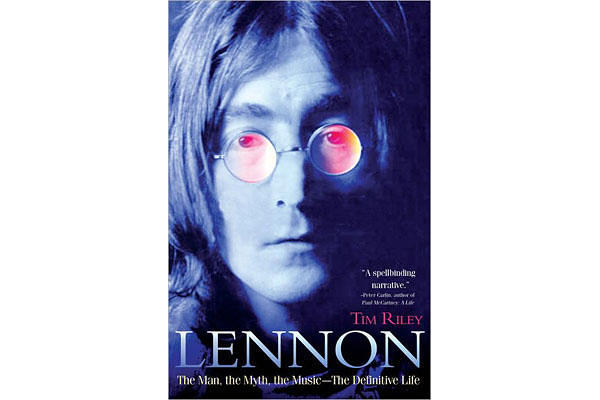
Biographer says he’s “unknowable,” which is a hell of a thing for a biographer to say
MIKE GERBER • It’s Lennon-mas again, and there’s a new bio out by Tim (“Tell Me Why”) Riley. The Christian Science Minotaur has a nice little Q and A with him.
Says Riley: “He’s really kind of like an American stuck in a British body. He was the most American member of the band.”
Will somebody finally acknowledge the scar of drug abuse that disfigured Lennon’s life? The Q and A suggests Riley might; I hope he does, because—though a downer, and not part of the holy story—drug addiction is an important part of who John Lennon was, and why he did what he did.

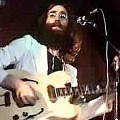
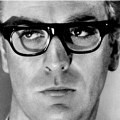
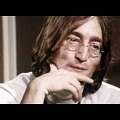
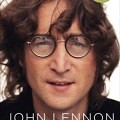
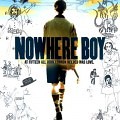
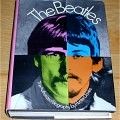
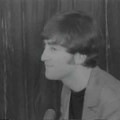
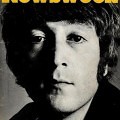
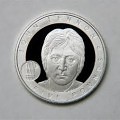
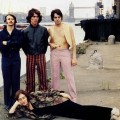
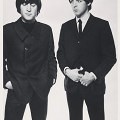
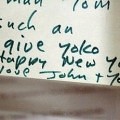
Sigh. Yet another Lennon book. I’m sure Riley’s book on John is good. He’s a careful journalist. But when is Paul going to get a decent biography by a respected writer? All Paul got was the Peter Carlin book which felt rushed, short, and superficial and rehashed too much Beatles history already covered elsewhere. Worse yet, Paul got the hatchet job by Howard Sounes, a guy who clearly (from his own book) doesn’t even like Paul or his music that much. Sounes book reads like he would rather have written about Lennon but it had already been done. Sounes is not a music writer and didn’t understand Paul’s music at all, and was more interested in rehashing the divorce than focusing on Chaos and Creation or Electric Arguments, Paul’s two best albums since 2005.
I wish someone like Peter Guralnick, who wrote the terrific Elvis bio, would take on McCartney. I don’t want hagiography. I KNOW the man had faults and career mis-steps. But it would be nice to have a fair, decent bio of Paul by a respected author. Maybe we’ll have to wait until he’s passed. Because we certainly haven’t gotten one now.
I’ve been reading a review copy of Tim’s book for several weeks. What with other commitments I’m only up to about “Love Me Do” days but it’s rolling right along. He’s good on Epstein and Martin and especially on John’s divided soul, torn between Mummy and Daddy–that seems to be the characterological theme.
I’m digging it so far and can’t wait to see how he handles the High Acid days of “Revolver,” the Christ business, etc. Tim’s big drawback is the often pedestrian quality of his writing. But as an overall comprehension, a fleshed-out picture, the book is coming together and the portrait is taking on color.
Re: drugs, Tim relates the Peter Sellers drop-in shown in the “Let it Be” outtakes, with John joking about needles on the bathroom floor. He says the scene “hints how they [John and Yoko] may have graduated from sniffing to syringes.” There doesn’t seem to be any illusion about the extent to which they took their abuses.
Full disclosure: Tim gives my Beatles book a nice little plug in the Acknowledgments.
And I agree with Anonymous that Paul could use a really probing, clear-eyed biography, one written out of respect and love, without snobbishness, with critical acumen and generosity for the non-rock styles Paul has been so adept at. Psychologically, I have never doubted he is every bit as complex as John. And the tragedies of losing his mother at such an early age to cancer, and his wife to the same thing later on–there’s a lot going on there that he simply guards very, very well. But that self-protection is another layer of his complexity. Anyone who could begin to get behind this, and make that familiar face seem strange, could have the makings of a great book.
When I see the book, if at least 1/3 of it is post-1969, I’ll buy it that day. Otherwise, I’ll buy it cheaply on Amazon. The question about whether we’ll ever really know John Lennon is spectacularly uninformed. More has been written about John than just about any public figure. Plus, he was pretty candid himself during his lifetime. The only really debatable topic is the nature of his “Dakota years” and whether they were more like the myth, or more like what others have offered.
Paul is much more of a mystery at this point, particularly as his answers to interview questions have become even more generic and lacking in detail within recent years.
Could not disagree more with some of Riley’s comments in the interview. John was not an “American stuck in a British body”. He was Liverpudlian through and through. As Derek Taylor said, they could not have come from anywhere else.
The fact that John and Yoko used heroin in 1968 hasn’t been a secret since John admitted as much in an interview, a very long time ago. I haven’t read the book, so I await the eyewitness evidence that their heroin use was directly responsible for the miscarriage with interest.
Drugs are not good or bad per se. The whole notion of “drug abuse” is a loaded term (ie you are not “abusing” drugs if the government, that ever changing coalition of oh-so-wise individuals, decrees that the drug in question is OK). The simple fact is that if John had not taken any drugs, we wouldn’t have the songs (or, at least, not nearly so many of them). He was on speed for the whole of the ’60s. I’m always amused by these articles that are written by someone incredulous at the fact they could have produced so much material in such a short time. Read Pete Shotton’s book – John thought nothing of being up for 3 days in a row. This wasn’t because he was superhuman, for Ringo’s sake! It was because he was, by his own admission (see the Lennon remembers interview) on speed all the time. Drugs were not a scar on his life – they were something he enjoyed and made good use of at a certain time in his life.
Anon, you and I will have to agree to disagree on the nature of drugs in John Lennon’s life. For me, the term “drug abuse” has nothing to do with the government’s hypocritical stances on a drug, and everything to do with the effects the substance has on a person’s life. Can drugs–licit and illicit–be used rather than abused? Sure, and people do it all the time. But you don’t need an eyewitness to prove that a pregnant woman shouldn’t be using heroin, and that an unwillingness to stop is probably, um, addiction?
I think, on balance, drugs probably hurt John Lennon–physically and psychologically–more than helped him. Maybe we wouldn’t have had the massive outpouring of Beatle material from 1962-70 without speed. I can like the songs, and still wish the guy hadn’t put himself through the chemical ringer.
Could Lennon have used drugs for maximum creativity, insight, ability to work, etc, and minimum physical damage, emotional instability, and run-ins with John Law? Theoretically, yes, but given the guy’s prodigious intake of all chemicals–booze as a kid, then Prellies, then pot, then acid, then heroin, and these are just the drugs we know about–he probably would’ve been better served to stay as clean as possible. IMHO. He didn’t have the genetics to play in that realm safely. Some do; Lennon didn’t. And it’s worth noting that his most fertile period as a Beatle came in Rishikesh, where his drug intake was much less than it had been previously or would be immediately after. That suggests that the straighter Lennon was, the more creative he was.
Romanticism about drugs has killed a lot of people, especially artists, and it’s one of the few legacies of the Sixties that I really despise. The good news is that we can pick and choose which parts are inspiring and useful, and which are less so.
“The scar of drug abuse”… what about the scar of depression? Wasn’t Lennon just self-medicating? And good, bad, or indifferent… the same impulse that made him such a phenomenal songwriter is probably the one that drove him to drug abuse.
Cara,
FWIW, I think he was self-medicating, and I think you’re right on about depression. That was the core problem. But at a certain point, drugs became their own issue. Maybe that point was age 16, maybe it was 26, who knows?
Fact is, Lennon did his best, and he’s a hero for what he was able to accomplish under such a heavy load. I just wish he’d gotten a better break re: addiction, addiction treatment, and depression, all of which we’re still leagues away from understanding.
I hear ya, Michael. But I guess what I’m saying is… if he hadn’t been such a downbeat guy who lived mostly inside his own head, would he ever have written Strawberry Fields or Julia or I’ll Be Back (a personal underrated fave) or Mind Games or Watching the Wheels or… you get my point. Unlike McCartney, who had a more balanced center and a less tumultuous relationship with his musical muse, Lennon’s creativity was fueled from a fiery place within.
I concede that drugs may have stifled him… but they just went hand-in-hand with his temperament and I don’t curse them. Kind of like how you need the sun for Vitamin D, but it can burn you at the same time!
By the way, “Lennon-mas” — lmfao!
Cara, I ran across this article in Forbes about methods of coping with unhappiness, and thought of our conversation. FWIW.
http://www.forbes.com/sites/alicegwalton/2011/09/21/eat-smoke-meditate-why-your-brain-cares-how-you-cope/
I used to see Lennon’s drug use as something that, while it had some harmful effects, helped fuel his creativity. Further listening and reading, and discussions here, have now brought me to agree with the opinion Michael expresses here.
We’ll never know what Lennon might have achieved if he had been able to deal with his demons without self-medicating, but I do believe drugs harmed him far more than they helped him. They harmed him most, perhaps, by crowding out alternatives (writing, therapy, meditation, etc.) that might have enabled him to get to the root of his griefs.
In Gabor Mate’s recent book about addiction, “In The Realm of Hungry Ghosts,” he includes a quote from Vincent Felitti, a doctor who works with addicts, that expresses this well: “It’s hard to get enough of something that almost works.”
And Anon. and Devin, I share your wish for a better biography of McCartney than has yet been written. It will take an excellent writer who loves McCartney’s best music to write it, and given Carlin’s and Sounes’ recent books, we probably won’t get one for years.
Nancy, book advances being what they are, it would be possible to Kickstart a Macca bio via fan donations. Pity none of us know a writer supremely well-qualified for such a project, do we DEVIN?
Swear to god, I’d rattle the cup for that. There are 5,000 Beatles/Macca fans that would prepay $5 for an ebook…and of course with that kind of interest, there’d be no trouble getting a conventional deal.
Full disclosure re: me and addiction–my family has a lot of creatives in it (scientists as well as artists) as well as a fantastic amount of addiction, mayhem, and early death. Those who came of age before 1950 became addicted to substances which, while awful, were not only well-integrated into the culture, they also killed slowly (most of the time). Alcohol and tobacco addiction are terrible, but we have centuries (if not milennia) of experience with them.
Those in my family who came of age when Lennon did, or after, have had a much harder road–as he did. We know what smoking does to a body, and it would’ve done to John what it did to George. (Lennon may not have believed in cancer, but it probably would’ve believed in him.) We don’t know what 1,000 LSD trips does to a brain. Lennon was experimenting on himself, and it’s a measure of just how desperate he was for psychic relief that he did it so compulsively.
My great- great- grandfather capering around the bogs of Ireland had relatively few ways to alter his consciousness; ditto for Jack Lennon. Fast forward to 1968, where Jack’s grandson John is simultaneously using pot, acid, and smack–if not others, as well. The 60s and 70s held special dangers for people genetically susceptible to addition, and it’s precisely because that generation is so reverent towards Lennon the drug user, that I feel obligated to rain on that particular parade. Not on Lennon as a person, though. He was doing his best, as we all do.
Thanks for posting that great Forbes article, Michael. An interesting point it makes–like Nancy does–is how methods like meditation are much better at breaking the “negative feedback loop.” (But didn’t John actually start meditate obsessively for a while?)
You mentioned the “generation that is reverent toward Lennon the drug user” and Nancy spoke about once believing that drugs fueled his creativity. For the record, my comments are not reflective of either of those assumptions. What I’m saying is that, rather than curse the scourge of drugs and the possible negative impact they had on John’s creativity, just understand that he was simply coping with the shitty hand he was dealt. (And, like you said earlier, Michael, we’re still “leagues away from understanding” depression.)
Like you, I love to psychoanalyze John Lennon… and it is my belief that he was an undiagnosed bipolar. Full disclosure: my ex was bipolar, and one thing he used to say all the time was, “Why do people keep telling me to do this or that to ‘snap out of it?’ Don’t they realize that I can’t?” No amount of “positive” coping methods–meditation, journaling, etc.–was going to get John to stop self-medicating. We are only now just scratching the surface on bipolar disorder. Back in John’s lifetime, he would never even have gotten close to receiving the type of help that he needed. And even if he did, there’s a good chance that much of his creativity would have been stifled the moment he went on legal meds.
For those who disagree with my diagnosis, you can’t deny that there was at the very least some clinical depression… he all but admitted it. Chemical imbalances are real, and controlling them is a major lifestyle adjustment… and I truly feel for those who have to deal with such burdens.
So rather than cursing his drug abuse, maybe we should try to better understand mental illness. Because I think any serious Lennon fan has got to admit that he wasn’t just a “downbeat guy”… there must have been something more going on with him.
On the topic of “the” definitive McCartney biography, I think that in the link you posted Riley touched upon the reasons why we’ll never see one:
“[Paul] is a giant puzzle because he really doesn’t care too much about scholarship and history. It doesn’t matter to him the way that it matters to a critic. Because he keeps telling stories that people have demonstrated to him repeatedly are not true. But they’re such great stories that you can tell that he kind of believes they are true. For him it is a kind of form of vivid truth. So he just doesn’t really have a critical vantage on his own life the way we very much wish he did.”
Cara–
“and it is my belief that [John Lennon] was an undiagnosed bipolar.”
Mine too.
“Full disclosure: my ex was bipolar,”
Ditto on this.
But with Lennon, the question must be asked: at what point did his relentless drug use play a role in his mood disorder? At what point did the mechanism of addiction exacerbate the underlying, preexisting condition?
It’s precisely because I think he was possibly bipolar, certainly depressive, from an alcoholic background, with significant emotional damage caused by bad parenting (understatement here) that I think drugs were such an awful idea for him. Was it almost inevitable that he’d turn to them? Yeah. Do I think he paid a terrible price for whatever relief they gave him? Yeah.
My last word (at least for this thread) is simply this: people who credit one jot of John or The Beatles’ “genius” or “creativity” to drugs are all wet. Drugs changed the texture of what they did; maybe the amount, too–but the creativity and genius was distinct from the drugs which, eventually, played a large role in alienating them from each other and extinguishing the group’s miraculous synergy.
To various points, my two centimes:
Bipolar sounds about right for John, given his long nights of tape-making in the Kenwood attic, and his self-admitted “troughs” of depression.
I don’t believe John took “thousands of trips.” I don’t believe he “ate it like candy.” I believe he was exaggerating. I doubt the human mind could take that kind of hallucinogenic ingestion. And if you look at the types who we KNOW must have taken more trips than John (Timothy Leary, f’rinst), the result of them was a simple softening of the brain and loss of all critical faculty. Not John’s problems, even at his worst.
What Riley says about the Paul bio is certainly correct, but Paul’s own feelings about scholarship and history matter only so much. I take it for granted that the great Paul book will be written, if it is, without his input, and probably against his wishes (should be still be alive then). The kind of book we want is inimical to the kind of figure he has always shown himself to be. It will take an act of interpretive will, not conventional biographizing, to make/remake Paul McCartney as the fascinating, complex person he has always tried to convince us he isn’t.
Wow, what a coincidence… must be something about living with a bipolar that makes people understand Lennon a little more.
Agree with you, Devin, that “the” bio would have to be interpretive… unless, of course, Jane Asher decides to speak up. (j/k)
It’s certainly not “wet” (or anything else) to fold drugs into the mix of the Beatles’ creativity. Their music was a product of their experience, collective and individual, and personalities. Drugs were a part of that, the same way that John’s family background was, or anything else that occurred in their lives. That isn’t the same as saying that drugs are a positive thing; no-one would argue that Julia’s death was a good thing in any way, but it was certainly a factor in John’s creativity, the same way that everything else was to a greater or lesser extent. You can’t remove any single feature of their lives from the mix, because then it wouldn’t have been them, if you see what I mean. From the good (love) through the bad (see above)to the indifferent (boxes of chocolates or whatever), they took it all and turned it into art, and that’s the point. Would they have been happier as individuals if their lives had been different? Maybe so. But then they wouldn’t have been the Beatles.
Could everybody please give names if they’re going to post multiple times to a comment thread? Makes it feel more like a conversation, less like a series of declamations. Thanks.
Anon, I was with you until your last sentence. Just my opinion, but J/P/G/R would’ve been The Beatles without any number of negative (or positive) influences in their lives.
The “artists must suffer” meme is a very bad thing, because it 1) discourages artists from seeking help, 2) excuses the aspects of society, particularly economic ones, that unfairly penalize artists, and 3) sometimes excuses, or even ennobles, destructive behavior on the part of artists.
While 2) doesn’t really apply to Lennon, 1) and 3) emphatically do. You’re right that isolating one factor in a creative person’s life is a distortion–they are a whole, as we all are–but given the prevalence of this meme, and the specific ways that it misleads people regarding Lennon/The Beatles, I think it’s legit to squawk.
You’ve clearly thought about all this, Anon, so I’ve got no beef. But most discussions of Lennon/The Beatles and drugs are incredibly simplistic–and usually positive. “LSD produced songs such as ‘Strawberry Fields’ and LPs like Sgt Pepper.” In other words, it wasn’t hard work or accumulated craft or synergy or genius, it was a little molecule. The Beatles themselves disagreed with this.
Most non-artists are totally “wet”–by which I mean naive–about what it means to be an artist; some of that’s willful romanticism, and some is actively encouraged by artists seeking the romance, drama and license that they feel comes with “being artistic.” Certainly since the days of Byron and Coleridge, drug use has formed a part of that meme, and innumerable artists have died as a result. In this context, lumping terrible misfortunes, like Julia’s death, in with terrible decisions, like getting addicted to heroin because “it’s a creative act”, is too close for my comfort. YMMV.
To Cara’s point above, I agree that
Lennon’s drug use has to be evaluated in the context of his situation and time: if he did have bipolar illness, its causes and treatment weren’t well understood. The same pretty much goes for clinical depression at the time. It’s very understandable that he managed his distress in part with drugs, and I don’t want to heap blame on him. But I do think it’s vital to acknowledge the kind of vicious cycle Michael describes, and often that hasn’t been done in writing about Lennon.
About McCartney and biography: I agree, Devin, that a satisfying biography of him would have to be interpretive. Peter Ackroyd’s biography of Dickens is a good example of a book that gets into the life by interpreting both the works and the subject’s need to present/disguise/protect himself. (I see a lot of similarities between Dickens and McCartney, but that’s a whole other thread . . .) Ackroyd’s biography is great because it combines sharp analysis, appreciation, and compassion.
I’d happily rattle the jar to raise money for that kind of biography of McCartney.
Nancy, would you write that McCartney/Dickens post? I for one would love to read it.
Me too.
Perhaps I didn’t express myself very well (and perhaps you aren’t saying that this is what I meant), but my point was absolutely not that artists must suffer. It was simply that creativity springs from the totality of a person’s life. The past cannot be other than what it was, and although imagining how things might have been if x, y or z hadn’t happened is fun, it is also pointless. If even one tiny thing had been different, then everything else after that is unknowable. To quote a cliche, for want of a nail the kingdom was lost (or won). If John hadn’t been such an enthusiastic consumer of drugs in his 20s, then he wouldn’t have been John (or not John as we understand(?) him). I’m saying “drugs”, but you could substitute anything else about him, from his taste in food, to eye colour to literally anything else. And that holds true for Paul, George, Ringo, you, me and everyone else. The Beatles might have existed, but they would not have been as we know them. I also do not think that taking heroin is/was a “creative act” – and John didn’t think it was either, judging by his comments on the matter. But he did turn it into a song, the same way he turned everything (good, bad or indifferent) that was happening in his life into a song. That was John. I have no beef with you either, Michael, and I understand, and, for what it’s worth, sympathise with where you are coming from (to use another cliche), though we disagree about a lot of things, clearly. (And if anonymous comments aren’t welcome round these parts, then I’ll refrain from commenting in future. I prefer them, for various reasons.)
For what it’s worth, Anon, I’m with you–it is what it is, or was what it was. (And wasn’t what we got more than enough?)
Thought: What if Anon is…Paul!?
Anon, if your comments must be Anon, then Anon to your heart’s content. They are really interesting, thoughtful, and illuminating. Keep ’em up. I really like our commenters and always want to befriend them–that’s my nature–and it’s easier to do that with names. That’s the only reason I said that.
I think you’ve expressed your points clearly and well; and of course you’re right that wishing Lennon was any different than he was, or his life, or The Beatles’ story, any different than it was, is blather. But in my case, it’s meant as sympathetic blather. Not as a Beatle or songwriter, but simply as a fellow human I think about a lot, who can’t be harmed/messed with by my having a public opinion about his behavior.
Anybody who’s given me the kind of pleasure Lennon’s work has given me, I wish every good thing to, and it’s one of the tragedies of showbiz (speaking from my tiny experience) that whatever drove you to get applause isn’t healed by it. So you turn to something else, frequently with equal intensity.
When I say, “I wish John Lennon hadn’t abused drugs”–and looking at the outlines of his life, I think he did abuse them, by any reasonable definition of that word–what I’m saying is, “I wish he had found a way to extract some solace that did not injure his health, harm his relationships, or (at a minimum) isolate himself from the rest of us.” Because that’s the thing about altering one’s consciousness–it isolates you. John Lennon was a very lonely man, for a lot of different reasons, and drugs made him lonlier. We’re all alone, but if I look at a chair and see a chair, and you see a mango, you’re in a totally different reality. (Maybe it’s real, but you’re the only person on Earth seeing it. We are social animals and need each other to corroborate reality.)
To be honest, Anon, I’m not so sure we disagree all that much. There seems to be good sense and sympathy behind your opinions; I hope mine strike you the same way. We see things differently because we are different people with different experiences working different Karma (new George doc Sunday!), and that’s not only OK with me, it’s as it should be. Keep commenting!
PS–The “creative act” was a reference to Yoko’s statement about why she and J took heroin–I may be misquoting it–which she has since stepped back from. I brought it up because, at the time John got into heroin the use of it–as well as many other illegal drugs, some dangerous, some not–was considered to be a liberated, liberating thing to do. Which of course is silly; whatever else they are, highly addictive substances are inherently, biochemically the reverse of liberating. Did they inspire Lennon? Sure. And so did a cornflake commercial and the movie “Snow White.” Heroin addiction is big suffering. Life gives us enough of that without us seeking more, especially under the false belief that it will set us free.
About Tim Riley’s quote on McCartney: “Because he keeps telling stories that people have demonstrated to him repeatedly are not true.” Couldn’t we say the EXACT same thing about Lennon? Lennon lied repeatedly in interviews, saying things he knew weren’t true, in order to market himself in particular ways.
Plus, why can’t people see that McCartney never denies the tensions in the band, he just chooses not to emphasize that bit because that’s the kind of sunny, look-on-the-bright-side person he is. Lennon, by contrast, often emphasized the tensions because that was the kind of acerbic It’s-all-shit kind of person he was. They both sought to put themselves in the best light because that is what we humans do, all of us.
Meanwhile, McCartney definitely has a dark streak, and Lennon often had the optimistic naivete of a child. They were both complex complex men.
When I posted that initial post about wanting a decent McCartney bio, it’s because I’m tired of reading books about him by authors who don’t like or understand his music. Sounes is a Dylan fan. But why fault McCartney for not being Dylan? Or for not being Lennon? Why write a book about a famous musician whose music you don’t even like? One reason: $$$$$
You need someone who appreciates the genius of people like McCartney (or Brian Wilson) for who he IS not who he is not. You need someone who understands and likes the best of his music, as Nancy says, without sugarcoating where he fell short. And we all know he fell short at times. But we also know that his moments of genius (like Ram) were regularly savaged by critics, only to get a fair hearing now 40 years later. It always irritates me how the worst of Lennon’s solo work gets ignored and forgotten while the worst of McCartney’s is thrown in his face with regularity.
And yes, I, too, would like to read that McCartney/Dickens post.
— Liz
Well, Nancy, you know what to do! 🙂
Agreed, Liz–what I dislike even more is how even McCartney’s BEST work is dismissed as mere pop, even his Beatle stuff. I can’t think of one rock artist whose flaws are so held up so relentlessly; Paul’s immense influence and abilities are always assumed, never that he’s competing with himself.
Brian Wilson is treated much better than Paul, because his long battle with mental illness–and the saga of Smile–fits into story patterns media/critics like to tell. Paul’s life has been quiet and, well, square; and so Paul’s music is dismissed as boring, because it’s not about the music.
When the guy dies, everybody will realize what a unique, incomparable genius McCartney was. If his private story ever comes out, I think we’d be surprised at just dramatic and fascinating his struggles have been. He’s been very English about ’em, while Lennon was rock’s favorite reality show.
I WILL write that Dickens/McCartney post, I promise! Thanks to everyone who expressed interest in the idea.
Liz, I strongly agree with you about the Sounes book. A responsible editor would have told him to drop the McCartney project and write about someone he felt a connection to. One of the most dispiriting things about “Fab” was Sounes deriding much of McCartney’s music as hackwork (including “Here, There, and Everywhere”!) in a book that showed all the symptoms of hackwork, at least in my opinion.
I highly recommend you do not read this book. Unless you think Sgt. Pepper is “fraudulent” as Tim does.
He makes a thousand assumptions about what Lennon was feeling – and states them as if they were fact.
I could point out many, many other unintentionally comic aspects but this brief comment will have to do.
Tim, I suggest you don’t presume to know so much in your next book and I also recommend you do not state your misguided opinions as facts.
Ciao
[…] proved to be a very interesting roundup of Beatle tomage by Tim Riley, author of Tell Me Why (and a bio of John Lennon which I will doubtless purchase and […]